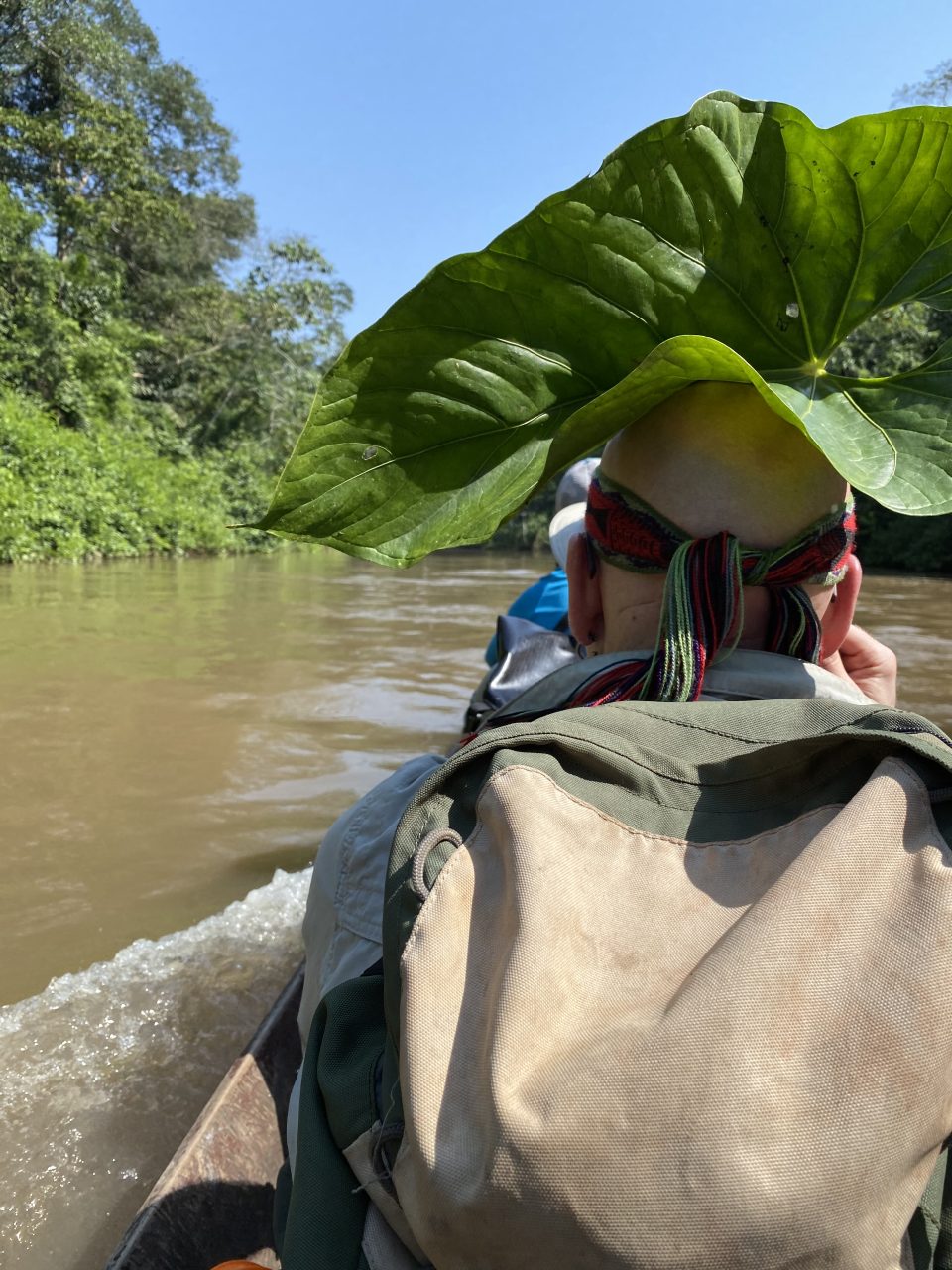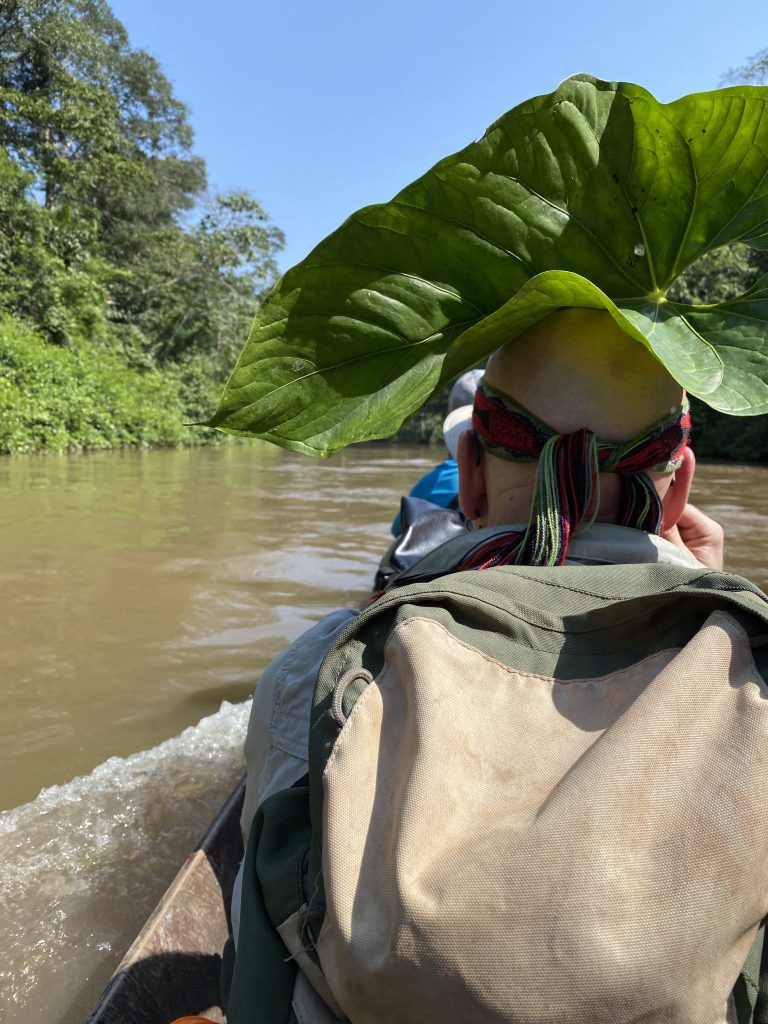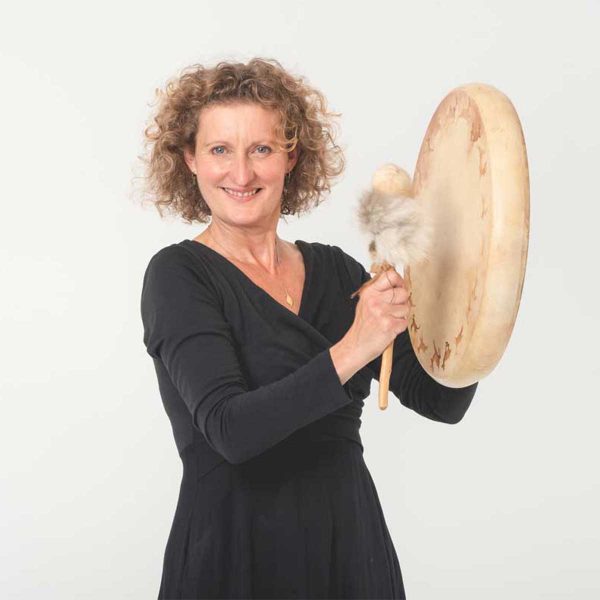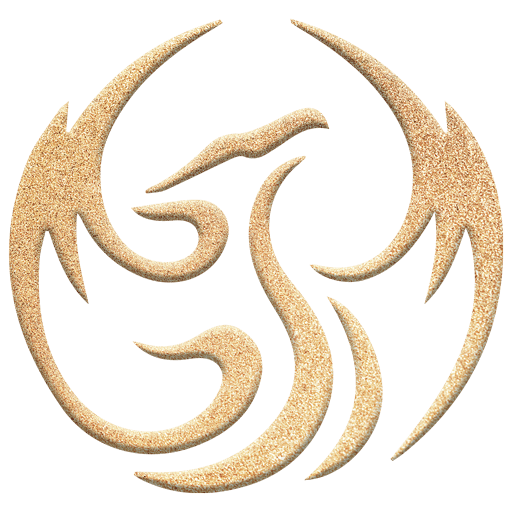"We first visited Wayusentza in 2012. Wayusentza is an Achuar settlement deep in the Ecuadorian Amazon, where the resident shaman is called Rafael Taish. This story happened then. I'm telling you this now, because this is where Ya'Acov and the Pachamama Journey group have just been, though its rather different there now.
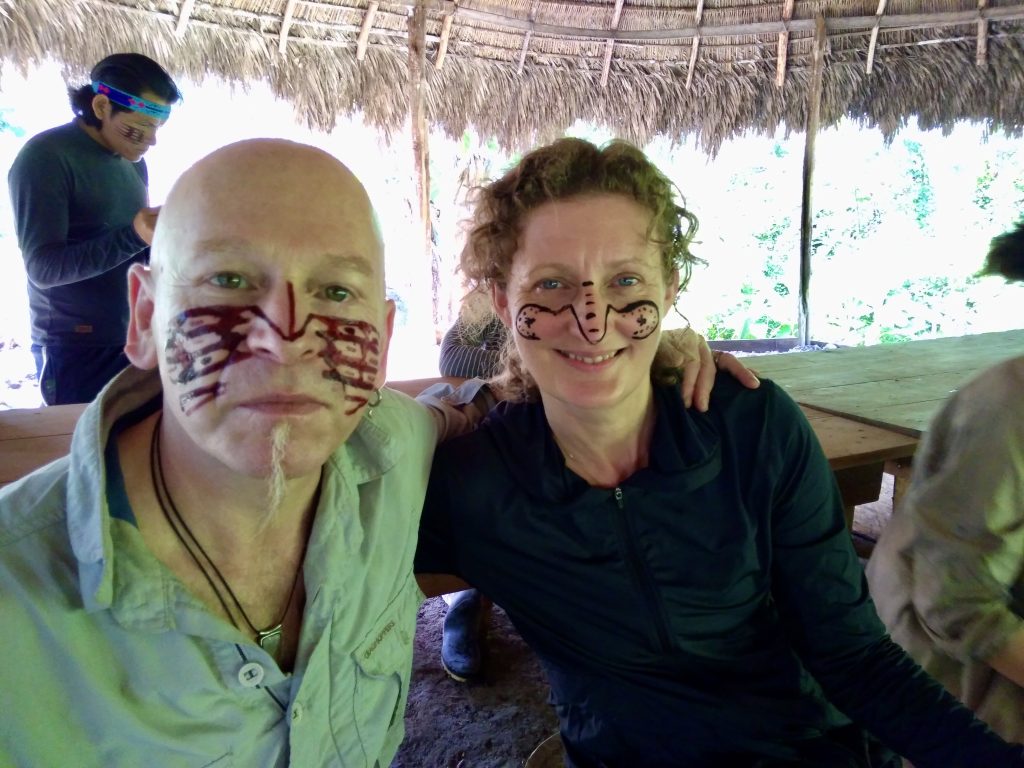
"Soon we are invited to the shaman’s house. We are reminded of Achuar protocol, as we step up over the line into the open house, we say “Winyahi”. And then sit down at one end of the family’s long house. We are ignored. Rafael has his back to us. He is repairing something and continues to work at his bench for quite a while.
We have been prepared , and have been told that this is Achuar custom. Its not something to take personally, it's how they do things. When someone first arrives, they come in, but hosts and guests don’t explicitly notice each other’s presence for a while. Thus everyone can settle and attune to each other’s presence first, before engaging directly with each other.
Behind Rafael are the sleeping platforms of the family, upon which women and children perch , occasionally speaking quietly with each other. The children peek at us shyly.
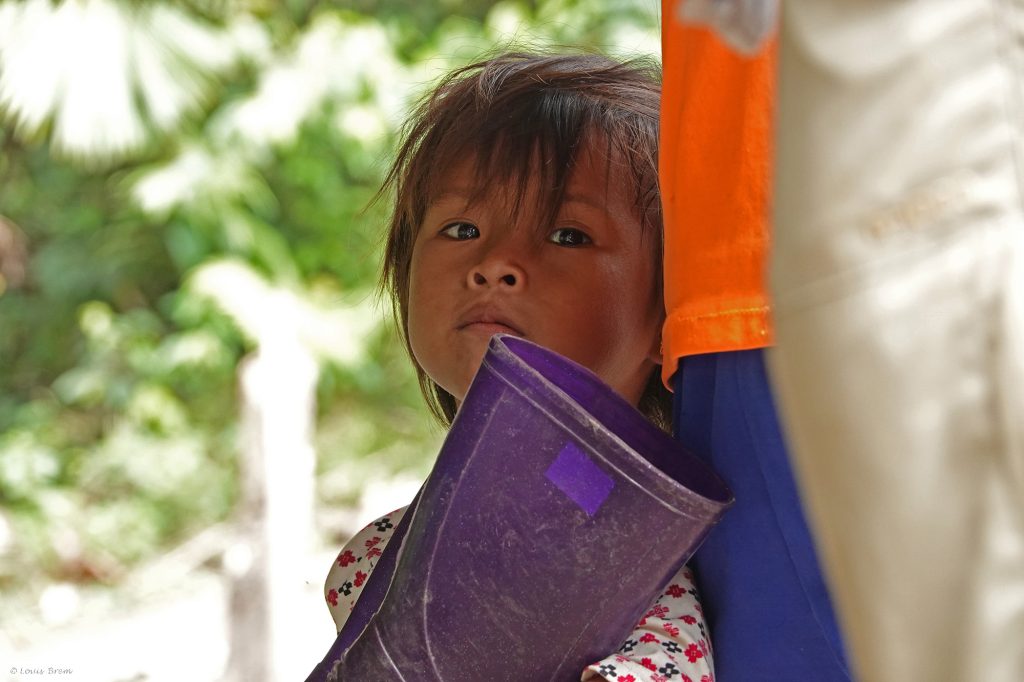
This is the private area of the house, where you only go if the women of the house give you permission. In the middle of the family area is the fire, which burns continuously, even in the heat of the day. The smoke keeps the roof from going mouldy and keeps insects at bay. The fire burns at the junction of 3 logs which also act as a trivet for cooking pots and is kept alight by timely gentle shoves of the logs inwards.
After a while Rafael’s wife serves us chicha, which is simply what they drink. It is made from manioc which the women chew, then spit it into a pot where it is mixed with water and ferments over several days. The probiotics from the saliva of the women kill off harmful bacteria that might be in the water and support the microbiome. It’s a milky colour with bits in and it is a definitely an acquired taste. I’m glad to say that now I have passed over that particular threshold and can join with the Achuar in saying at least a little bit of “Chicha is life!”
Rafael greets us with a formal greeting and then everyone introduces themselves. Rafael seems somewhat stern, though I also feel very safe with him. We are in the ceremonial house. Like almost all Achuar houses it is open on each side. Each person has their sitting spot, on a stool or on a bench.
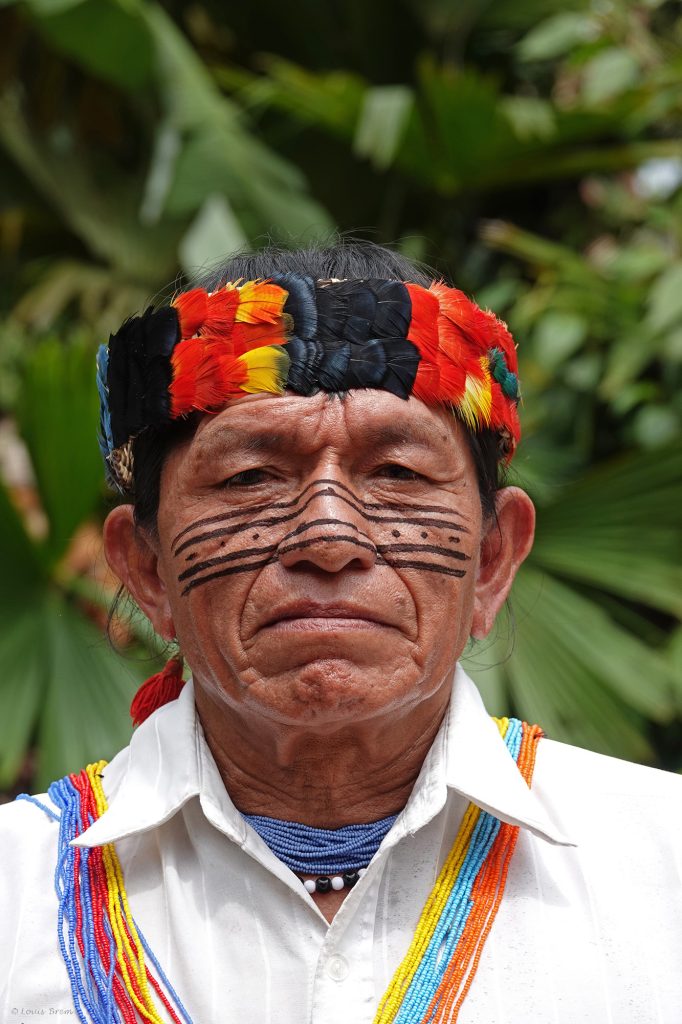
Rafael has told us privately that he recognised us when we arrived and already knew us as two shamans. It was an amazing feeling to be known at distance, though I wasn’t sure what to make of the ‘shaman’ bit for myself. Rafael asked us for a healing for one of his daughters. She had a health issue which had proved persistent.
This was a great honour but also a major responsibility. If it didn’t go well Rafael would know all about it. And I knew I was not ready for this, and I knew that Ya’Acov had been preparing for this moment for his whole life. He was.
Later, we are in the belly of the ceremony and it is dark, very dark. Each person is in their own deeply personal journey. Rafael has given each person a cleansing limpia to help them on their inner path. Ya’Acov attends to his own personal work and when he feels ready, he quietly tells Rafael that now is the time when he can offer the healing. Someone goes to fetch the young girl from the nearby family house. In the dark, under the watchful protective presence of her father, Ya’Acov begins to work with her.
Ya’Acov makes some strange noises when he gives healings. We become aware of other noises, little snufflings and stifled chucklings. And then we realise that one end of the ceremonial house has become a gallery, crowded with women and children.
The children are very politely trying not to laugh. They are doing their best to hold back the giggles that are trying to burst out of them. But it's hard. It's obviously seriously funny for them to hear the strange whooshing sounds that the foreign shaman is making. Ya’Acov realises what is happening and gives them permission to laugh by laughing himself. This releases a cascade of joyous, bubbling hilarity which still makes me laugh as I write this now. When Rafael joined in, the release was complete.
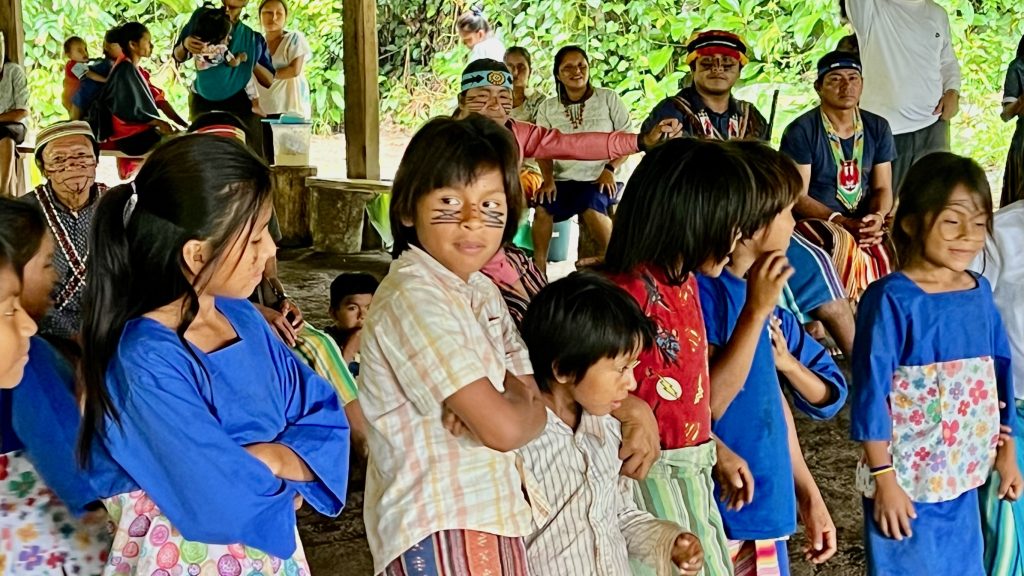
That moment as a turning point; a collective out breath as we arrived in humour together and Ya'Acov showed them that he could laugh at what they funny about him, with them. We all relaxed together. And Rafael’s daughter received her healing and was strengthened by it."
As I have get to know Rafael more over the years, I recognised that he is a man of great kindness and warmth as well as immense strength and vision. I have seen his wife scold him for not attending to the cooking pot. I have seen his great tenderness, love and care for his children. And I have seen him look younger and younger over the years. Rafael and David Tucker knew and loved each other well over many, many years. It is clear that he misses him mightily.
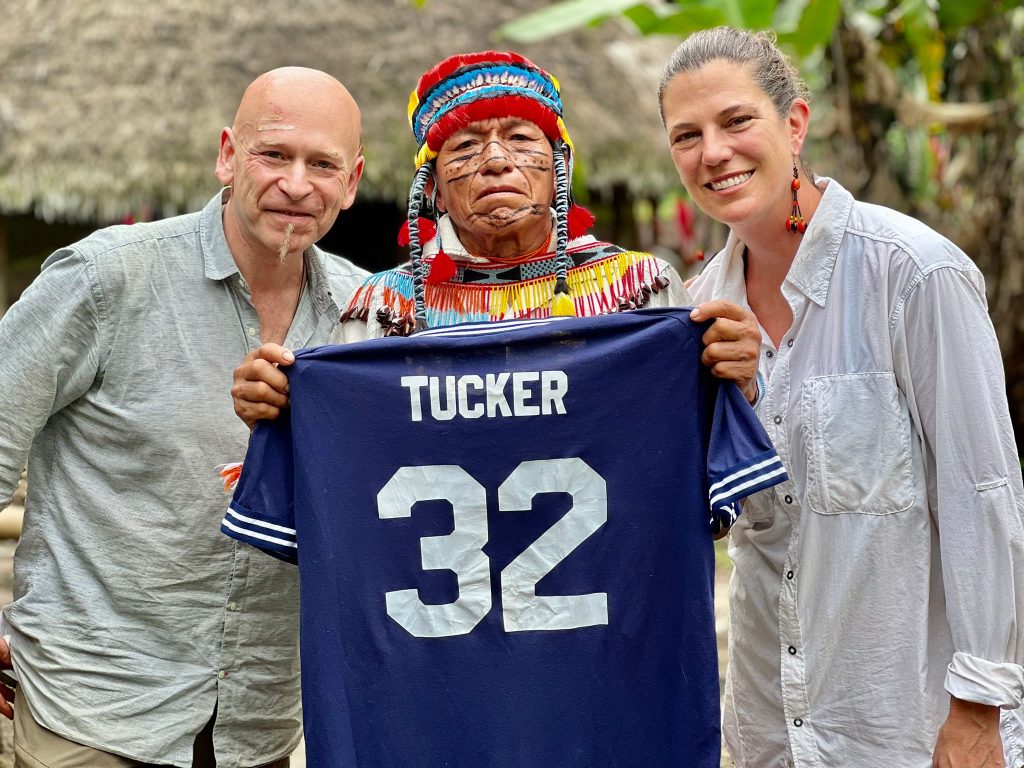
II still struggle with trying to find a name which accurately names what I do and who I am. Ya’Acov encourages me to stand behind the name of “Medicine Woman”, which is what Manari now calls me. As far as I can see, this difficulty of finding a category where I feel truly at ease is cultural and historical as well as personal, to do with the relationship between women, spiritual authourity and power. I know I work vibrationally. I know I am dedicated to learning how to respect life, within myself, in others, and the biosphere. And I know I am naturally a teacher and a healer. And I know song and dance are integrally part of that.
In Wayusentza many years ago, we worked with David on the Spanish words of a song Ya'Acov and I had written together (him the words and me the music). This is something I know deep in my soul, that singing and dancing is a central part of how I give back to life. This song is our anthem for the spirit of the forest, which the Achuar name "Arutam". We have sung this song for Achuar communities and I've seen something in their response that touches me, but that I don't fully understand. I've seen the eyes, especially of the women, shining with tears and what looks like a deep pleasure or sense of recognition. In general the Achuar women are more reserved than the men, and so it's a special moment when an Achuar woman steps forward actively to connect directly with you. Most of the times that this has happened to me has been after singing this song for them.
I sang the "Force of the Forest' to the community before we left. It was my way to say "Thankyou!"." Afterwards, we were walking down the narrow muddy path through the dense forest, back towards the river where the canoes waited for us. Our feet pick their way carefully over branches and around patches of sticky mud. The Achuar women are helping us by carrying our heavy bags. Seeing a slight Achuar woman effortlessly sling your massive backpack onto her back and then trot off lightly into the forest is a humbling and inspiring sight.
This time, as I walked, with my guitar on my back, a woman carrying someone's back pack.overtook me and then stopped straight in front of me. Turning to face me, She grasped my hands in hers. She was clearly emotional. We only had four relevant words in common: "Makate" (thank you) "Ayu" (yes) "Arutam" (spirit of the the Forest) and "Nunqui" (spirit of the earth). These words echoed back and forward between us, melding with our tears and our laughter. As we embraced, I felt she was saying; "You understand, you feel it too. We did not know this. We are happy." That moment gave me so much happiness.
I share a recording of this song with you here and thank you all the singers who joined this spirit choir. The "Force of the Forest."
Ya’Acov and the group have now travelled by canoe from Wayusentza to Kapawi, which is an iconic and beautiful ecolodge which has just been impeccably restored. Kapawi was initiated and is owned, run and staffed by the Achuar and is built on platforms right at the edge of a lagoon. It is on these platforms that Lynne and Bill Twist stayed right at the start of the Pachamama Alliance (see blog #10).
The song soundscape of the frogs at night is an extraordinary thing. It’s very loud and is often very funny. There is one type of frog that makes a sound like a water donkey braying and laughing at the same time. It’s hard to believe that something so small can make a sound so large. How did nature make a frog which, when you hear it, is almost guaranteed to make you laugh outloud in the middle of the night. Thank you!
Kapawi sits on the banks of the river Capahuary, which is a much smaller river than the Pastaza. The group is invited to a canoe trip in which we are given 2 person canoes and towed upriver in them. Each canoe partnership then has the freedom to drift slowly or paddle quickly downstream. Ya’Acov and I wait until everyone else has gone and when it is just us, we slip our mooring and allow the current to take us ever so slowly and quietly. We take in the surprising silence of the late afternoon and drift, whispering occasionally, only using the paddles when we are about to hit a log or run into he bank. And sometimes, just sometimes, we are joined by river dolphins. We hear what might be a dolphin blow from close behind us. Is it, could it be? Then nothing. Quiet, wait, relax. Then a hundred metres or so in another direction a smooth back arches ever so slightly above the water. A tail, flip. Gone. Then two at once, together. It goes on like this, a water ballet of appearing and disappearing. I feel wonder and joy and that we are in the presence of beings who are so different from us, and yet who are choicefully connecting and curious and want to be there with us, for a while. A rare communion.
And then they are gone.
We return to Kapawi elated and sensitised by this meeting. Once again, awe, gratitude and awareness of the privilege of being able to play in the river alone, and yet safe in the care and protection of our Achuar guides who are watchfully aware of who is where.
Tomorrow, we will meet Sumpa, one of the oldest shamans in this part of the forest.
Today I got a message from Ya’Acov to say that when he was riding down the river, he saw a mother howler monkey cuddling her two little ones. He sends his love, as do I.
Susannah and Ya'Acov Darling Khan
Find out about our next
Dancing with the Heart of the World
journey in the Amazon
Find out about the Sacred Headwaters Alliance
